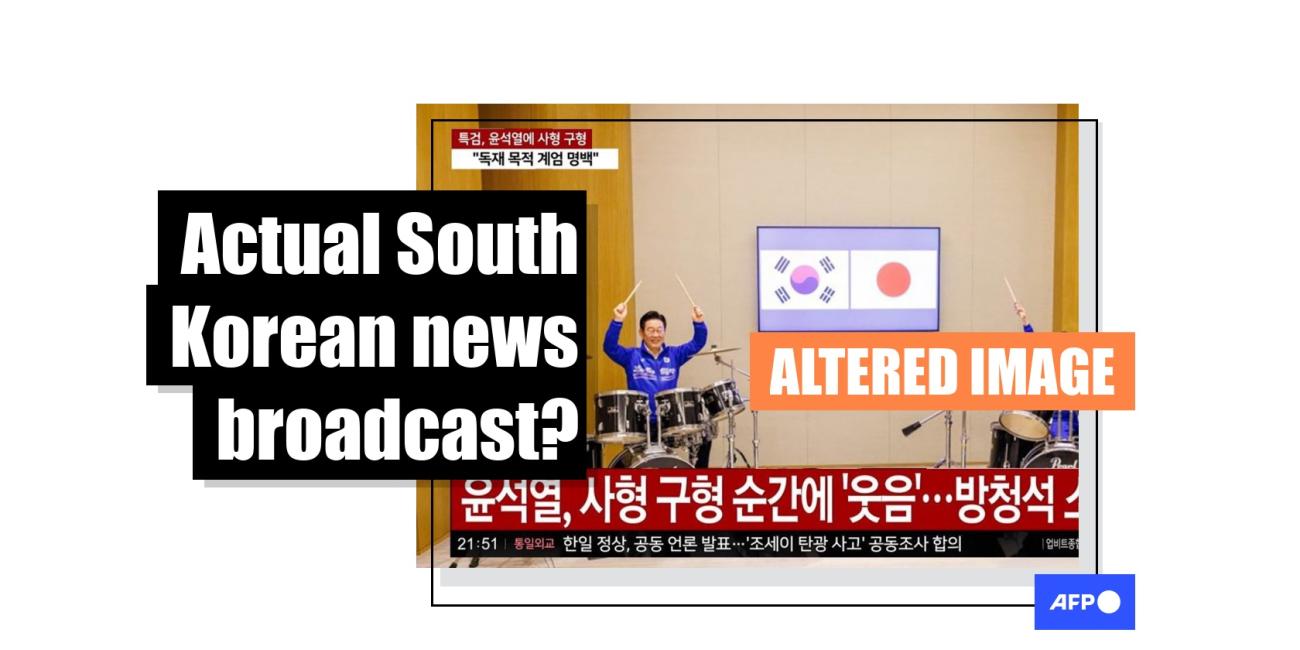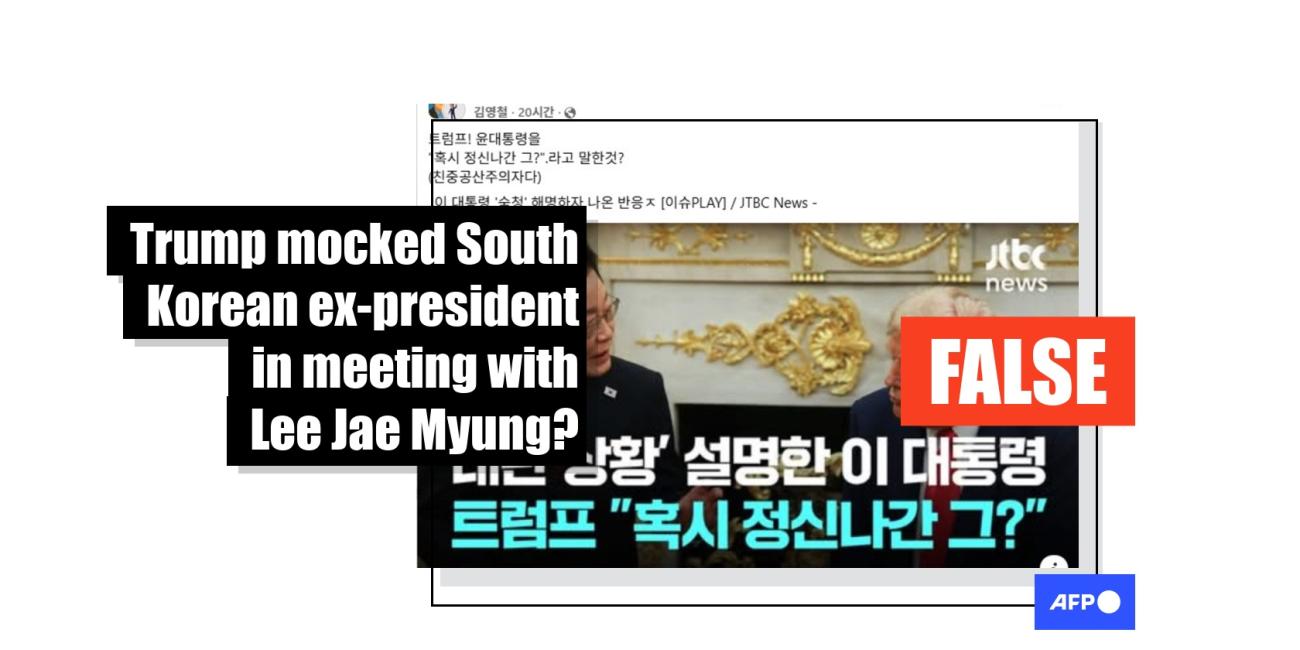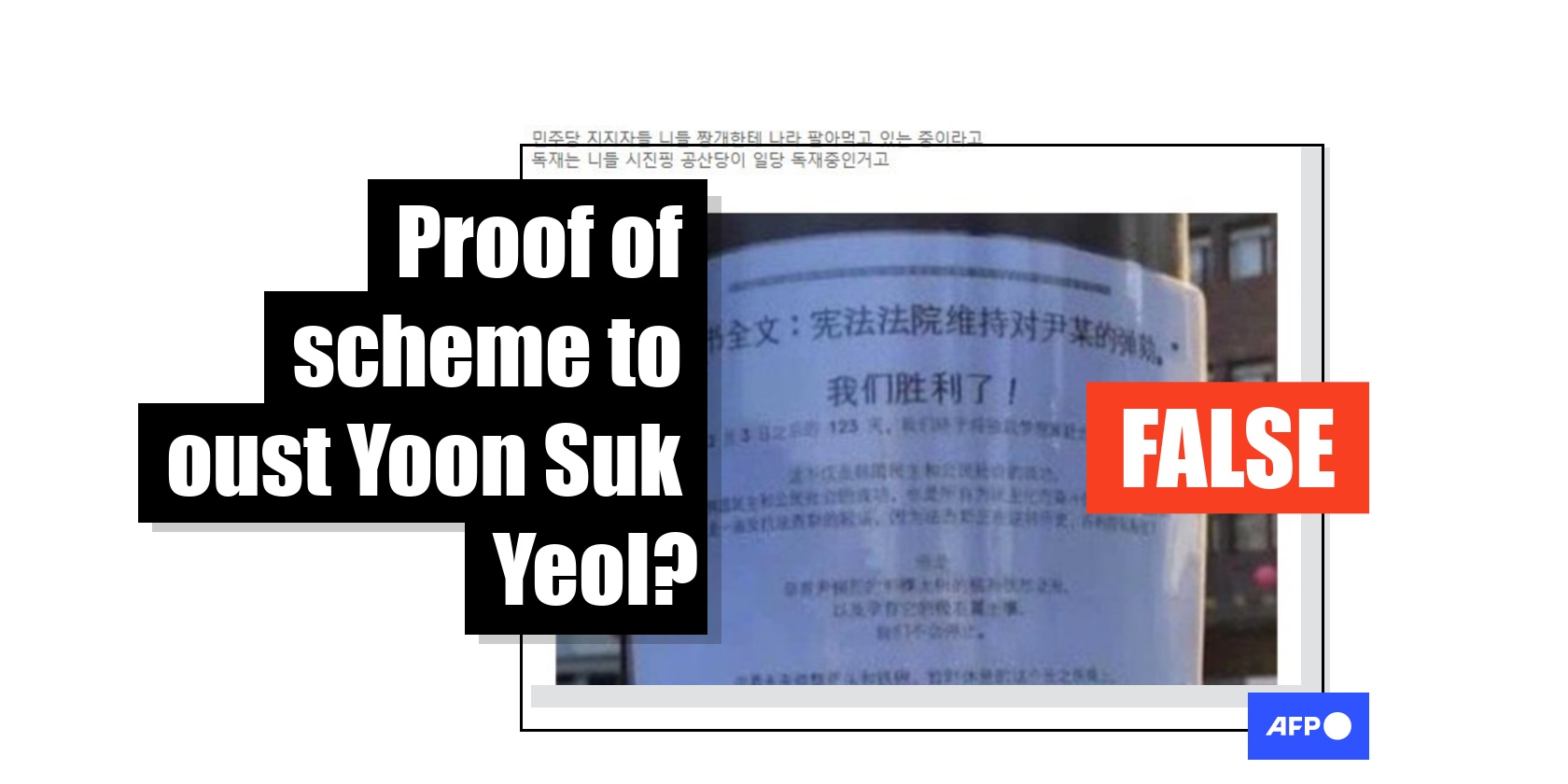
Chinese-language poster in S.Korea reignites baseless foreign infiltration claims
- Published on April 11, 2025 at 09:43
- 3 min read
- By Hailey JO, AFP South Korea
"As expected, the Democratic Party and the Chinese are in cahoots," reads an April 7 post on a South Korean online forum Nate Pann.
"It gives me the chills," the post goes on to say. "The Chinese say they protected our country's freedom. This is insane."
It features an image showing a simplified Chinese-language poster alongside a partial Korean translation that reads: "The Constitutional Court has upheld Mr. Yoon's impeachment. We won!"
"In 123 days since December 3, we have finally driven the forces that dreamed of dictatorship out of the Republic of Korea!" the poster continues.
"This is not just a victory for South Korea's democracy and civil society, but also a lighthouse of hope for all nations fighting for democratisation."
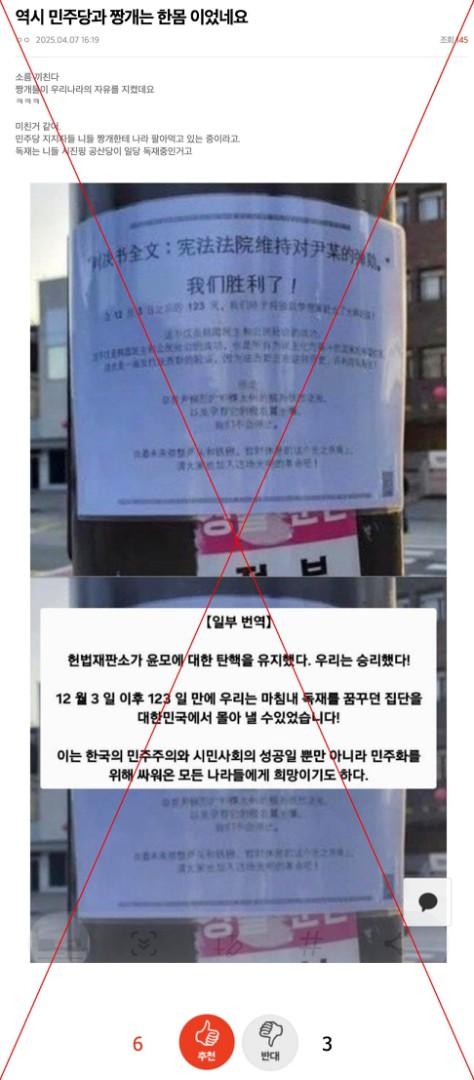
Other posts on X, Threads, Facebook and a news report from South Korean news outlet Asia Today shared similar images.
They surfaced a few days after the Constitutional Court unanimously ruled to oust impeached president Yoon Suk Yeol over his disastrous martial law declaration (archived link).
They also circulated against the background of a resurgence in anti-Chinese misinformation.
The former leader has defended his shock move claiming external forces, North Korea, and anti-state elements were working together to threaten national security and sovereignty (archived link).
He specifically accused unidentified Chinese individuals of flying a drone to photograph Seoul's spy agency building and a US aircraft carrier docked in Busan.
But an AFP analysis found the Chinese-language poster was in fact created by a local group.
Information for tourists
AFP found the poster near Seoul's Gwanghwamun Gate, located at 12 Hyoja-ro, Jongno-gu, on April 9 (archived here and here).
The gate is the main entrance to a royal palace from the Joseon Dynasty, Korea's last kingdom, and is popular among foreign tourists. The area served as a key site for mass anti-Yoon protests in the lead-up to his ouster.
AFP confirmed the location by comparing the buildings seen behind the poster to those visible in the background of the photo shared in false posts.
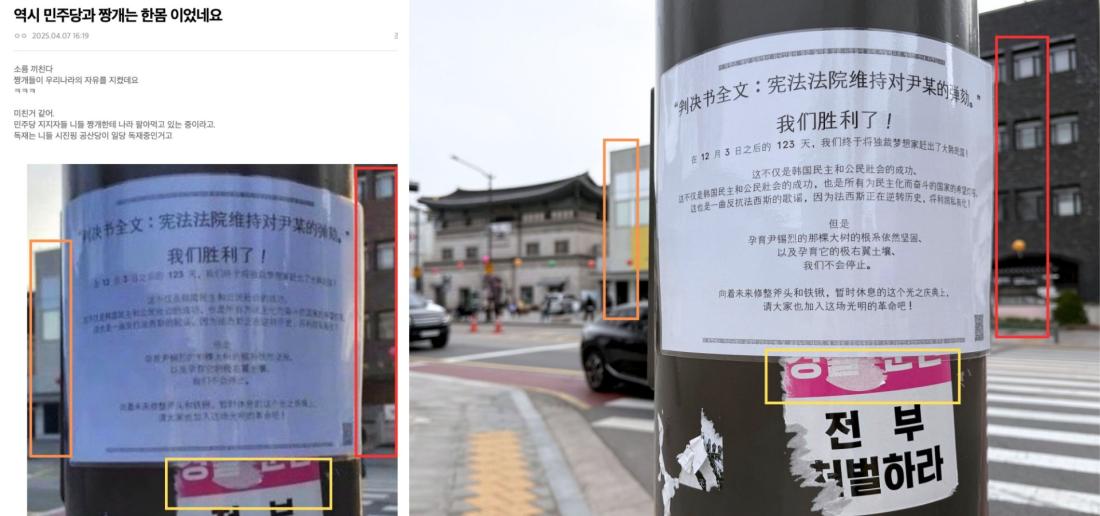
In fact, it bears a disclaimer in Korean printed in a small font that reads: "This is an informational picket voluntarily created by citizens who frequently receive questions from foreigners at the rallies."
It also features a QR code in the bottom right corner, which links to a Google Forms page for general inquiries (archived link).
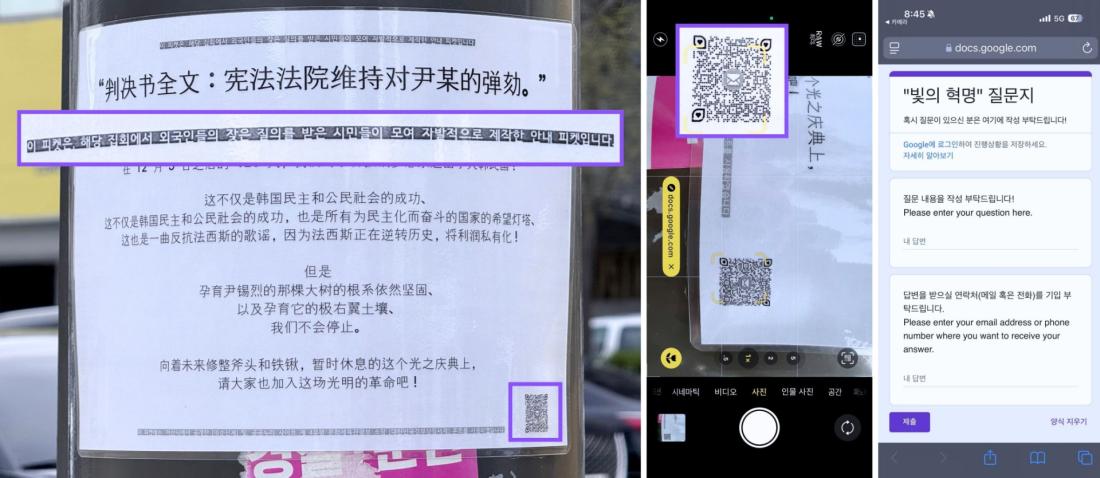
An AFP journalist fluent in Chinese analysed the poster's text and found signs it had been translated from Korean.
These include a Chinese character often used as a placeholder for names in legal documents, and the phrase "lighthouse of hope", which sounds unnatural and is uncommon in standard Chinese usage.
Similar posters attached to a nearby tree in other languages stated they were put up by supporters of the South Korean rally organiser "Bisang Action" (archived link).
"Dear tourists, the large protest and the crowd may have surprised you!" read one of them written in Korean, Chinese, English, Japanese, Thai and German.
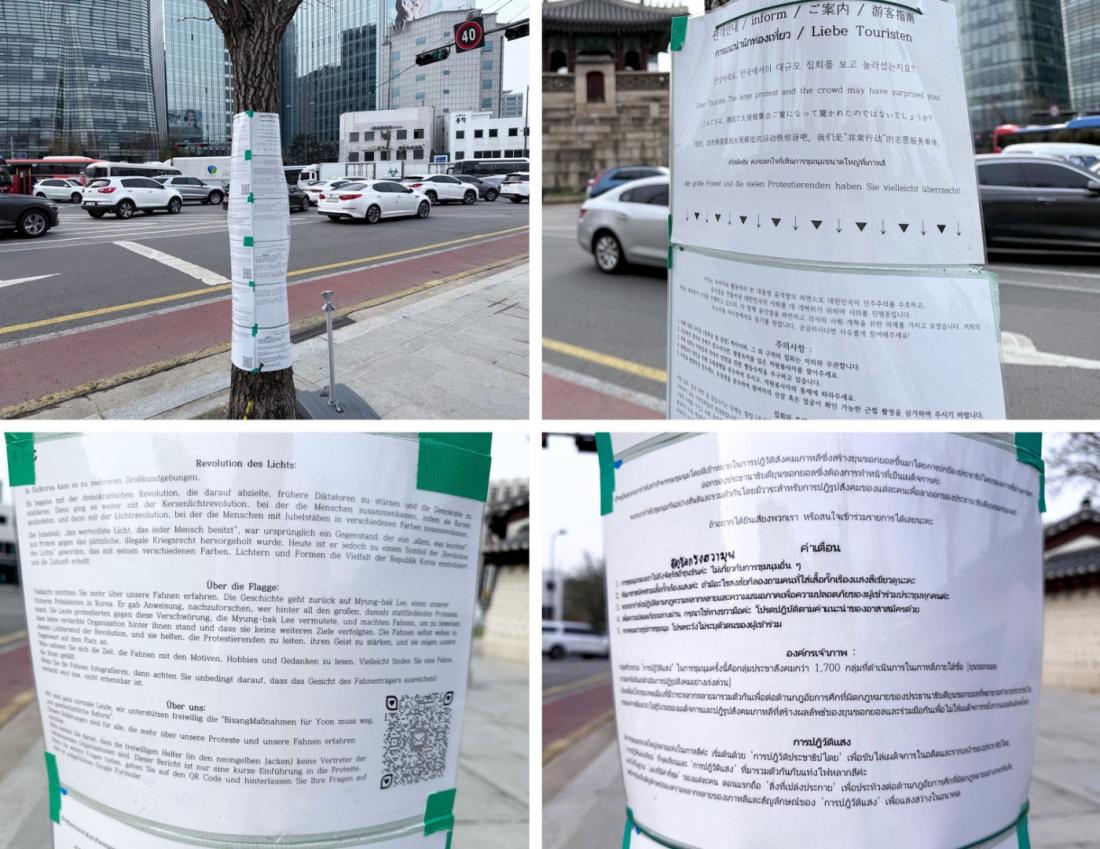
They offered brief information about the rallies in the area and included requests, such as asking visitors not to take close-up photos of protesters' faces.
Scanning the QR code on the English-language poster directed readers to the same Google Forms page.
AFP has debunked other misinformation surrounding the political crisis sparked by Yoon's martial law and his subsequent impeachment.
Copyright © AFP 2017-2026. Any commercial use of this content requires a subscription. Click here to find out more.
Is there content that you would like AFP to fact-check? Get in touch.
Contact us
